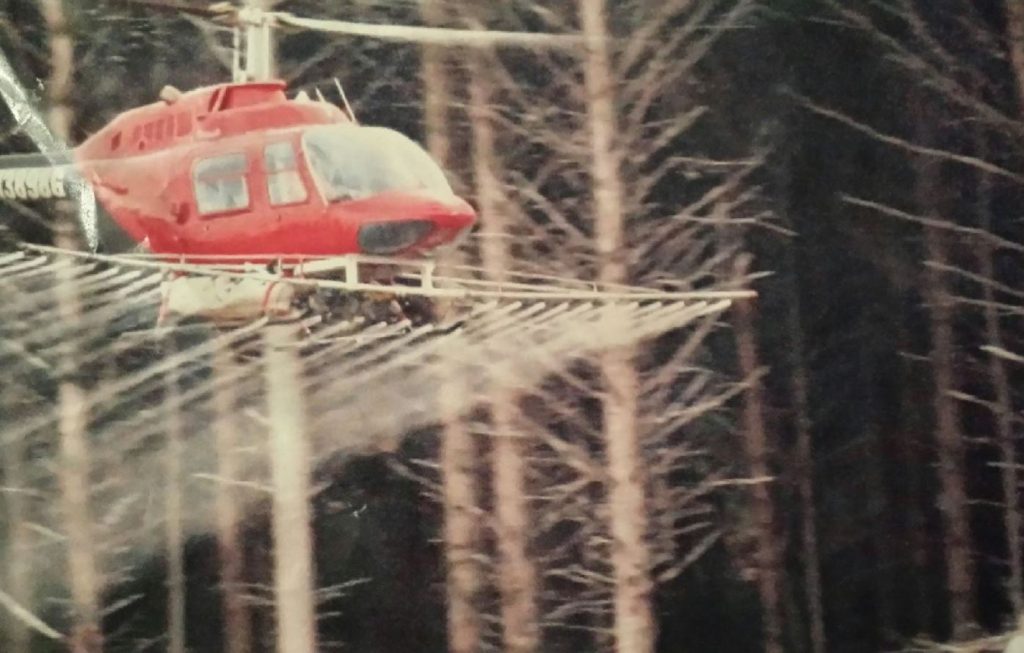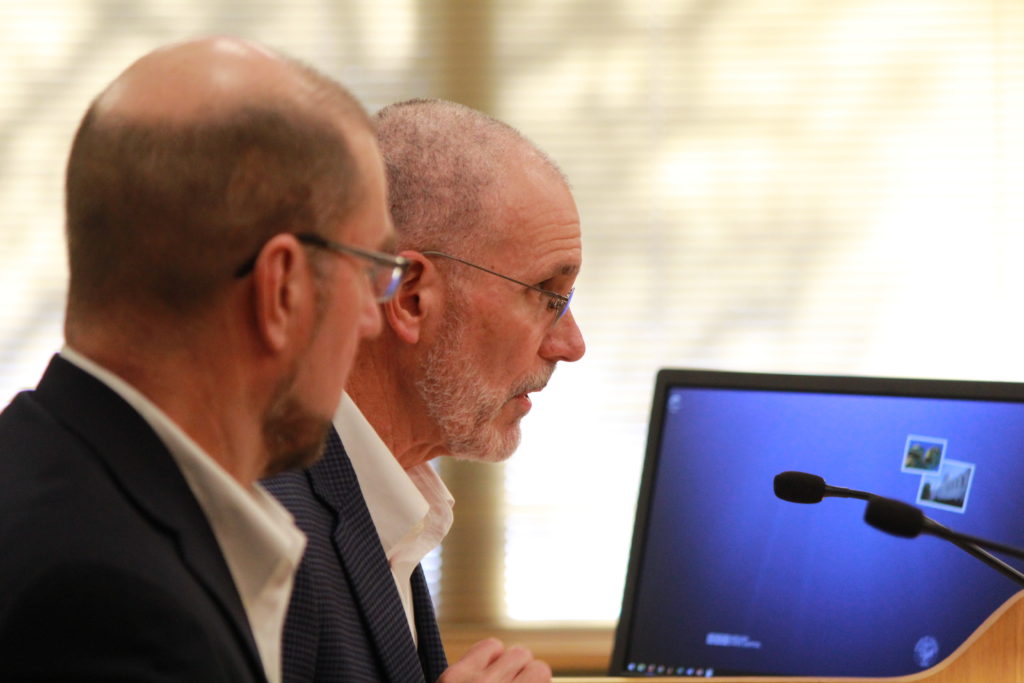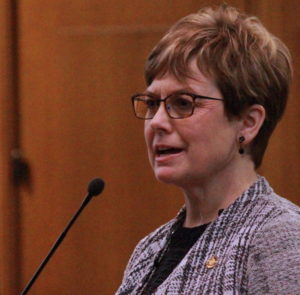
By SAM STITES/Oregon Capital Bureau
SALEM — The fate of the landmark deal signed between a coalition of timber companies and environmental groups depends on lawmakers acting on legislation that would reform certain Oregon logging practices.
The deal brokered by Gov. Kate Brown and announced earlier this month outlines a process for the two warring sides to set aside prospective ballot initiatives and related litigation in favor of working together.

One of the provisions in that agreement says the deal hinges on passage of legislation to reform practices around aerial spraying of pesticides. That legislation — House Bill 4168 — was introduced Thursday by the House Rules Committee where lawmakers got their first glimpse of what timber interests, conservationists and policy staff from the Brown’s office have been working on.
The bill would require timber companies and small-woodland owners to notify nearby residents when they aerially spray pesticides following a harvest. It would spur the creation of new notification technology and establish an opt-in system for nearby residents to receive warnings in real-time when spraying takes place. It also adds a 300-foot no spray zone around schools and homes, as well as buffers for streams.
Lastly, the bill directs the state Board of Forestry to adopt rules regarding certain salmon species for the Rogue-Siskiyou region which were adopted for the rest of the state in 2017.
The goal is to have both sides, which have been fighting in Oregon’s forests and courtrooms for upward of two decades, come together to work on a habitat conservation plan that applies to state and private forestlands. The plan would give some certainty to timber owners moving forward and would meet long-term goals for protecting ecosystem and wildlife.
Committee members heard from three people during the bill’s first public hearing Thursday. That included Gina Zejdlik, the governor’s deputy chief of staff; Bob Van Dyk, policy director for the Wild Salmon Center and representative of the environmental groups, and Greg Miller, representative of the coalition of timber companies.

“Over the years, we’ve been on the opposite side of major timber interests,” Van Dyk said. “So today it’s my pleasure to be on the same side of the table as Greg and asking you to support this legislation.”
According to Miller, those responsible for aerial spraying of pesticides would be required to report to the Forest Activity Electronic Reporting and Notification System by 7 p.m. the day before. The system would then prompt an email to those who have registered with the program within one mile of the location where spraying is set to take place. They would have to report back on the completion of the spraying mission as well.
A company or landowner failing to provide the necessary notice could be punished with anything from a warning up to a $1,000 fine for repeated violations. Anyone who deliberately interferes with a spraying operation could be fined up to $1,000 for the first incident and $5,000 fine for a second incident within a five-month period.

As legislators questioned Miller and Van Dyk, Rep. Sherrie Sprenger, R-Scio, had potentially the most pointed question of the hearing: With so much bad blood between the two sides, how can legislators expect the agreement and bill to work out in the long term?
“I believe that it’s the right thing to do,” Miller replied. “I also believe it’s the right time to do it, and I believe that looking at the work we’ve done since we sat down (in January) … we figured out there’s something worth reaching for. There’s a real commitment by these organizations to move forward.”
Zejdlik told committee members that Brown is committed to ensuring all stakeholders, including Oregon’s tribes, can participate in the mediated process that will take place over the next 18 months if the bill should pass.
But the backdrop of a looming walkout by Republicans could derail the legislation, setting up again a potential clash of forestry ballot initiatives on the November ballot.
“This agreement proves that the future is brighter for Oregonians if we work together with a willingness to compromise,” Zejdlik said. “Healthy forests and a vibrant forest industry are not mutually exclusive, and Oregonians need both for prosperous and sustainable communities.”



















